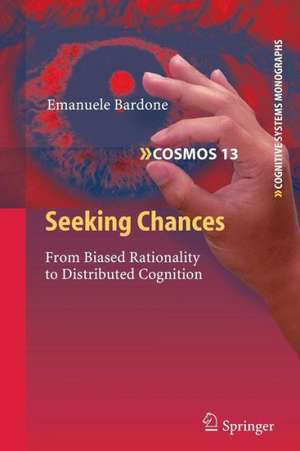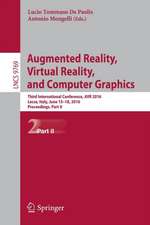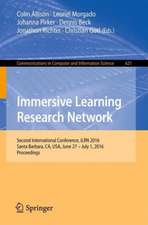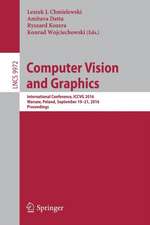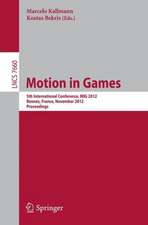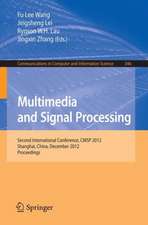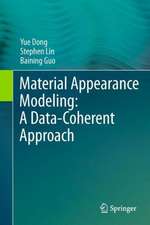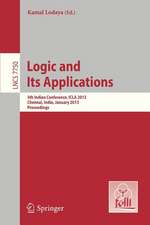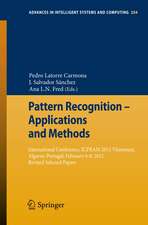Seeking Chances: From Biased Rationality to Distributed Cognition: Cognitive Systems Monographs, cartea 13
Autor Emanuele Bardoneen Limba Engleză Paperback – 29 mai 2013
| Toate formatele și edițiile | Preț | Express |
|---|---|---|
| Paperback (1) | 629.73 lei 6-8 săpt. | |
| Springer Berlin, Heidelberg – 29 mai 2013 | 629.73 lei 6-8 săpt. | |
| Hardback (1) | 641.71 lei 6-8 săpt. | |
| Springer Berlin, Heidelberg – 6 mai 2011 | 641.71 lei 6-8 săpt. |
Din seria Cognitive Systems Monographs
- 15%
 Preț: 647.59 lei
Preț: 647.59 lei - 20%
 Preț: 645.31 lei
Preț: 645.31 lei - 18%
 Preț: 957.62 lei
Preț: 957.62 lei - 15%
 Preț: 632.55 lei
Preț: 632.55 lei - 15%
 Preț: 643.99 lei
Preț: 643.99 lei - 20%
 Preț: 1447.17 lei
Preț: 1447.17 lei - 15%
 Preț: 633.02 lei
Preț: 633.02 lei - 15%
 Preț: 639.90 lei
Preț: 639.90 lei - 20%
 Preț: 643.50 lei
Preț: 643.50 lei - 15%
 Preț: 640.55 lei
Preț: 640.55 lei - 15%
 Preț: 641.71 lei
Preț: 641.71 lei - 5%
 Preț: 1103.75 lei
Preț: 1103.75 lei - 15%
 Preț: 637.59 lei
Preț: 637.59 lei - 15%
 Preț: 648.24 lei
Preț: 648.24 lei - 20%
 Preț: 650.40 lei
Preț: 650.40 lei -
 Preț: 391.02 lei
Preț: 391.02 lei - 15%
 Preț: 643.48 lei
Preț: 643.48 lei - 20%
 Preț: 663.61 lei
Preț: 663.61 lei - 20%
 Preț: 652.54 lei
Preț: 652.54 lei - 20%
 Preț: 699.43 lei
Preț: 699.43 lei - 15%
 Preț: 640.88 lei
Preț: 640.88 lei - 20%
 Preț: 657.67 lei
Preț: 657.67 lei - 20%
 Preț: 1000.04 lei
Preț: 1000.04 lei - 20%
 Preț: 648.44 lei
Preț: 648.44 lei - 18%
 Preț: 886.92 lei
Preț: 886.92 lei - 20%
 Preț: 647.61 lei
Preț: 647.61 lei - 20%
 Preț: 651.09 lei
Preț: 651.09 lei - 20%
 Preț: 1161.71 lei
Preț: 1161.71 lei - 15%
 Preț: 642.68 lei
Preț: 642.68 lei - 20%
 Preț: 649.93 lei
Preț: 649.93 lei - 18%
 Preț: 944.19 lei
Preț: 944.19 lei
Preț: 629.73 lei
Preț vechi: 740.86 lei
-15% Nou
Puncte Express: 945
Preț estimativ în valută:
120.53€ • 125.36$ • 101.00£
120.53€ • 125.36$ • 101.00£
Carte tipărită la comandă
Livrare economică 13-27 martie
Preluare comenzi: 021 569.72.76
Specificații
ISBN-13: 9783642267833
ISBN-10: 3642267831
Pagini: 192
Ilustrații: XX, 172 p.
Dimensiuni: 155 x 235 x 17 mm
Greutate: 0.28 kg
Ediția:2011
Editura: Springer Berlin, Heidelberg
Colecția Springer
Seria Cognitive Systems Monographs
Locul publicării:Berlin, Heidelberg, Germany
ISBN-10: 3642267831
Pagini: 192
Ilustrații: XX, 172 p.
Dimensiuni: 155 x 235 x 17 mm
Greutate: 0.28 kg
Ediția:2011
Editura: Springer Berlin, Heidelberg
Colecția Springer
Seria Cognitive Systems Monographs
Locul publicării:Berlin, Heidelberg, Germany
Public țintă
ResearchCuprins
Fallacies and Cognition: The Rationale of Being Fallacious.- Bounded Rationality as Biased Rationality: Virtues, Vices, and Assumptions.- Moving the Bonds: Distributing Cognition through Cognitive Niche Construction.- Building Cognitive Niches: The Role of Affordances.- The Notion of Docility: The Social Dimension of Distributing Cognition.- Seeking Chances. The Moral Side.
Recenzii
From the reviews:
“It is a refreshing read that triggers many research ideas on a multiple array of disciplines, including cognitive science, social cognition, social psychology, sociology, organisational behaviour, applied psychology, and decision making. In short, it is a must read!” (Davide Secchi, Biosemiotics, Vol. 6, 2013)
“Seeking Chances: From Biased Rationality to Distributed Cognition is a most welcome book. It discusses many contemporary issues that are appearing in different disciplines … . it is well suited to be a course material in various disciplines, since it provides a framework that uses many different disciplines … . I am strongly suggesting the book … to all who are interested in broader context on how humans deal with the current world and with the changes that are already in process in our niches.” (Merja Bauters, Mind & Society, Vol. 11, 2012)
“It is a refreshing read that triggers many research ideas on a multiple array of disciplines, including cognitive science, social cognition, social psychology, sociology, organisational behaviour, applied psychology, and decision making. In short, it is a must read!” (Davide Secchi, Biosemiotics, Vol. 6, 2013)
“Seeking Chances: From Biased Rationality to Distributed Cognition is a most welcome book. It discusses many contemporary issues that are appearing in different disciplines … . it is well suited to be a course material in various disciplines, since it provides a framework that uses many different disciplines … . I am strongly suggesting the book … to all who are interested in broader context on how humans deal with the current world and with the changes that are already in process in our niches.” (Merja Bauters, Mind & Society, Vol. 11, 2012)
Textul de pe ultima copertă
One of the most distinguishing abilities that human beings display is the ability of turning almost everything into a clue to make a problem affordable in relation to what one knows and, most of all, to what one does not know. That is what characterizes humans as chance seekers. A poor pattern of reasoning and even our ignorance may help us make a decision, and eventually solve a problem. This is the rationale of biased rationality. However, not everything leads us always to a good decision. Some people are not satisfied with weak arguments or it-is-just-so strategies. They want something better. This second attitude points to a different form of rationality that takes advantage of the idea of distributed cognition. Basically, human beings improve their survival strategies by building cognitive niches capable of delivering potentially ever more symptomatic information. It is through various manipulations of the environment that we gain new and more reliable chances which can be used to de-bias our rationality. Through the laborious activity of cognitive niche construction, we come up with situations in which we are better afforded by our environment, and thus biases or fallacies cease to be appealing.
Caracteristici
Stimulates a discussion about the idea of human cognition as a chance-seeking system Novel insights about how to treat some issue pertaining to decision making and problem solving Written by a leading expert in the field
